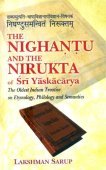Plato: 1 definition
Introduction:
Plato means something in the history of ancient India. If you want to know the exact meaning, history, etymology or English translation of this term then check out the descriptions on this page. Add your comment or reference to a book if you want to contribute to this summary article.
India history and geography
Source: archive.org: Journal of the Madras University, vol.28 (history)Plato is the name of one of the great philosophers of Ancient Greece, who lived during the same period of the Tamil Grammariam Tolkappiyar.—The age of Agastiyar, the author of the first grammar in Tamil, is generally placed in the VI century B.C. and Tolkappiyar, whose grammar is still extant, is generally considered his devout pupil. In Greece this was exactly the period of her great dramatists and playwrights, Aeschylus, Sophocles and Euripides, her historians, Herodotus, Thucydides and Xenophon and her philosophers, Socrates, Plato and Aristotle though the last belongs to the IV century B.C. This was again the period of the rising art of the Greeks, which reaches its highest water-mark in the period following the Persian wars, the well-known age of Pericles.

The history of India traces the identification of countries, villages, towns and other regions of India, as well as mythology, zoology, royal dynasties, rulers, tribes, local festivities and traditions and regional languages. Ancient India enjoyed religious freedom and encourages the path of Dharma, a concept common to Buddhism, Hinduism, and Jainism.
See also (Relevant definitions)
Starts with: Platostoma africanum, Platostoma coloratum, Platostoma hispidum, Platostoma menthoides, Platostoma palustre, Platostoma rotundifolium.
Ends with: Lava plato.
Full-text: Friega platos, Lava plato, Aphalatuna, Padhana, Thymos, Euripides, Herodotus, Xenophon, Socrates, Thucydides, Aristotle, Aeschylus, Sophocles, Katyayana, Tanha, Amkha.
Relevant text
Search found 55 books and stories containing Plato; (plurals include: Platos). You can also click to the full overview containing English textual excerpts. Below are direct links for the most relevant articles:
‘The World’s Unborn Soul’ < [October 1947]
Yeats's Concept of Image < [July 1967]
Book Reviews < [January – March and April – June, 1995]
Kuntaka’s evaluation of Sanskrit literature (by Nikitha. M)
Introduction (Sanskrit literary criticism) < [Introduction]
Complete works of Swami Abhedananda (by Swami Prajnanananda)
Chapter 5 - Theory of Transmigration < [Discourse 3 - Reincarnation]
Preface < [Discourse 3 - Reincarnation]
Chapter 6 - The Influence of India on Western-Civilization < [Discourse 1 - India and Her People]
The Vishnu Purana (by Horace Hayman Wilson)
Concept of Mind in the Major Upanishads (by Gisha K. Narayanan)
3. Study About the Mind < [Chapter 1 - Introduction]
Yoga-sutras (with Bhoja’s Rajamartanda) (by Rajendralala Mitra)
Sūtra 3.9 < [Third Chapter (Vibhuti Pada)]
Sūtra 2.15 < [Second Chapter (Sadhana Pada)]
Related products

